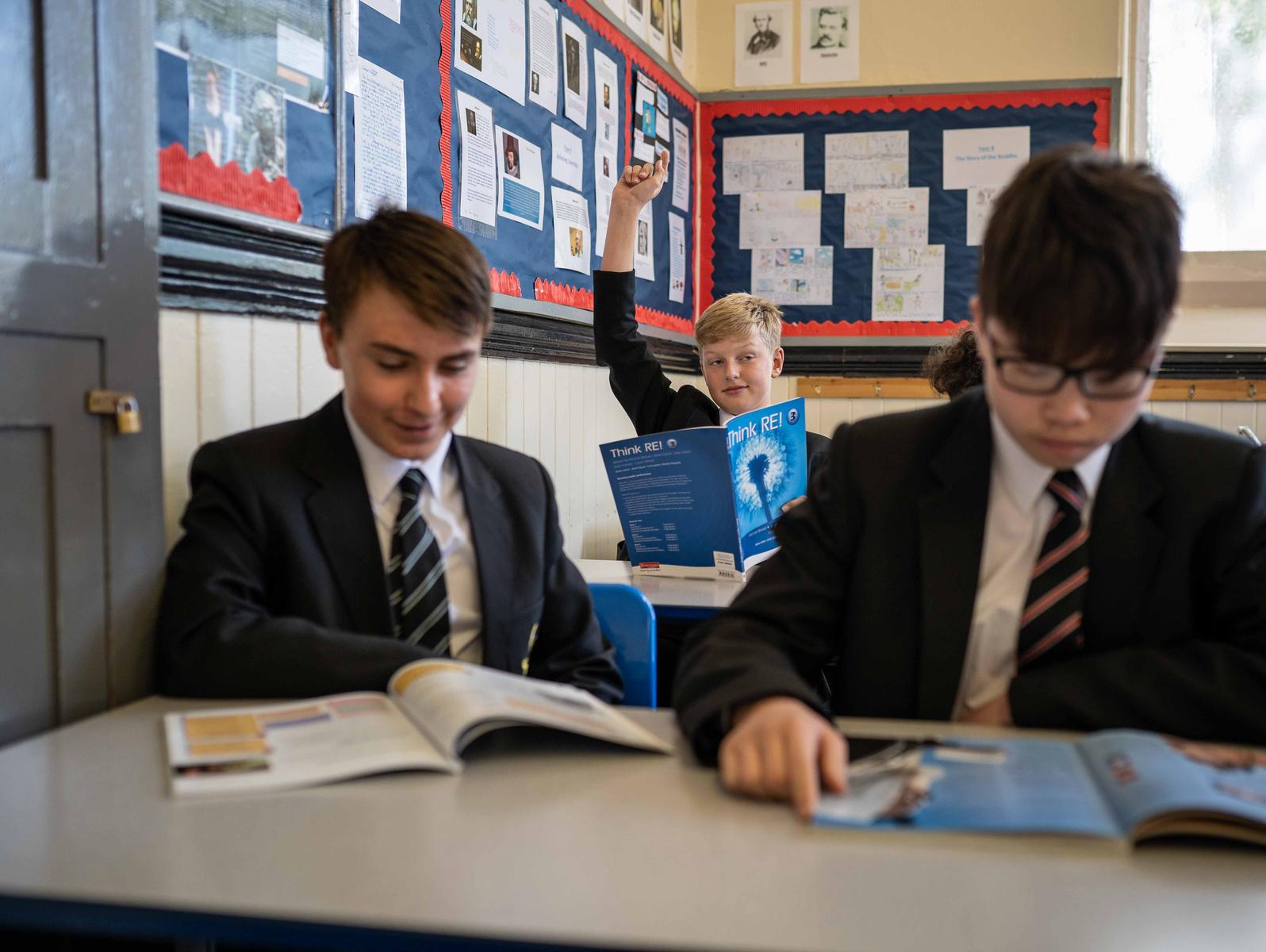37
Religious Studies Who am I? Why am I here? Is there a God? What are good and evil? Is it ever right to go to war? What is Religious Studies about at GCSE? Students will follow the AQA Specification A syllabus and build on ideas, skills and understanding developed throughout the Lower School. It is open to students of all faiths or none, since the curriculum covers many issues and ultimate questions relevant to everybody. By engaging with these ideas, students will mature in their own views and learn to respect the views of others. GCSE Religious Studies also offers the opportunity to cultivate important study skills as the boys write essays, develop reasoned arguments, and express their own opinions whilst researching great philosophies of the past. The specification is split into two parts and each is examined with a 1¾ hour exam after two years. The first part involves studying the beliefs and practices of two major world religions. The second paper focusses more on philosophy and ethics and we will study four themes from a possible six. Those themes are: - Relationships and Families - Religion and Life - The Existence of God and Revelation - Religion, Peace and Conflict - Religion Crime and Punishment - Religion, human rights and social justice Whilst these themes might seem somewhat vague, it is important to bear in mind that many of the themes covered are ones that have already been introduced further down the school. For example: The Problem of Evil, scientific arguments and euthanasia and abortion are all studied in year 9; prejudice and discrimination, the nature of religion, the importance of rules or morals are all studied in year 8. So the GCSE is to be seen as a continuation of many ideas that we have already started thinking about and will continue to formalise and deepen our knowledge. It is a great subject for those boys who want to study something a little different, continue conversations from the Lower School or develop their own philosophical tendencies. ‘But is there a job at the end of it?’ One the questions most frequently asked in Religious Studies lessons is whether the subject has any practical
























